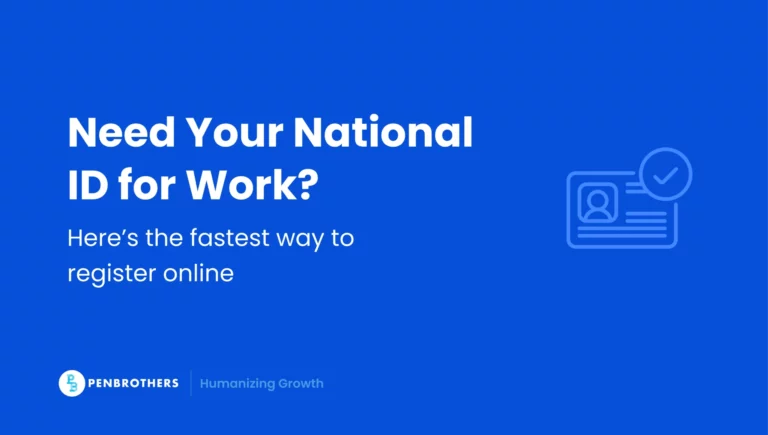August rolls in. Your team in the Philippines suddenly reschedules a project launch. A supplier holds off on signing a deal. Someone casually mentions: “It’s Ghost Month.”
For global employers managing remote teams in the Philippines, this time of year can spark confusion. Is this a cultural superstition or a legitimate factor in local business decisions?
This guide cuts through the mystery of Ghost Month. You’ll learn what it means, how it actually affects business performance, and what smart employers do to maintain momentum.
What Is Ghost Month and Why Do Businesses Care?
Ghost Month refers to the seventh month of the lunar calendar, a period when many Filipino-Chinese communities believe the “gates of the spirit world” open, allowing restless spirits to roam the earth. In 2025, Ghost Month runs from August 1 to August 29, with the Hungry Ghost Festival falling on August 15.
While it’s not a national holiday, its cultural influence, especially among Filipino-Chinese business circles is notable. Traditionally, people avoid:
- Opening new businesses
- Launching large marketing campaigns
- Hosting major celebrations like weddings or groundbreakings
- Signing contracts or making big purchases
But does this translate into real business impact? Let’s dig deeper.
Does Ghost Month Really Affect Business in the Philippines?
Yes, but not for the reasons most outsiders assume.
Many Philippine businesses report a natural dip in activity during Q3. However, this slowdown is often more logistical than spiritual. Here’s what actually drives it:
1. Seasonal Weather Patterns
August is peak rainy season in the Philippines, with monsoons and occasional typhoons affecting foot traffic, logistics, and operations, especially in retail, hospitality, and transportation sectors.
2. Budget Rebalancing
Families often deal with post-enrollment expenses during this time. After paying tuition and school-related costs in June or July, discretionary spending tends to drop by August.
3. Cautious Buyer Behavior
In areas with strong Chinese-Filipino presence (e.g., Binondo in Manila or Cebu’s business hubs), businesses may delay expansion plans or investments due to traditional beliefs.
Industries Most Affected:
- Real Estate: Fewer transactions or site launches
- Retail & Hospitality: Slower foot traffic, fewer promotional events
- Event Management: Reduced bookings and lead generation
Yet many other sectors, especially B2B services, digital teams, and global operations remain unaffected.
Learn how remote teams manage seasonal dips with smart planning: Bank Holiday Management Tips for Remote Teams
How Do Filipino Companies Respond During Ghost Month?
Instead of pausing operations, many businesses use this quieter period to reset and re-strategize. Here’s how:
Internal Upskilling and Mid-Year Training
With fewer external campaigns or sales events, companies turn inward. Teams use the time to:
- Run department-wide recalibration sessions
- Host leadership training and capability-building workshops
- Revisit KPIs and align on Q4 goals
This isn’t just busywork, it’s a deliberate effort to strengthen execution for the months ahead.
“Soft” Launches and Low-Risk Testing
Ghost Month isn’t ideal for major product rollouts, especially if targeting local or superstitious markets. But it is ideal for:
- A/B testing ad creatives or landing pages
- Piloting niche services in smaller segments
- Experimenting with new formats (e.g., email flows, reels, referral programs)
Think of it as a sandbox phase, lower stakes, high learning value.
Strategic Financial Planning
With sales activity slower in some sectors, finance teams get breathing room to:
- Reforecast revenue and expenses
- Optimize budget allocations for Q4 promotions and year-end bonuses
- Review vendor agreements and renegotiate where needed
This proactive planning gives companies a sharper edge once demand ramps back up.
Group Buying and Tactical Promos
To counter slower foot traffic or consumer spending:
- Retailers and F&B brands launch bundling deals or “Ghost Month Promos”
- Online sellers push limited-time vouchers and prepaid packages
- Franchises offer discounted buy-ins or extended payment terms
Should Global Employers Hit Pause? Not Necessarily.
If you’re managing Filipino professionals, especially remote workers in fields like IT, finance, customer support, or creative services, Ghost Month is business as usual.
Here’s what foreign employers should know:
- Work continues as normal
Outside of a few culturally conservative circles, most Filipino professionals don’t adjust their daily routines during Ghost Month. It’s not an official holiday, and your remote team remains focused, available, and on track. - Hiring and operations rarely pause
There’s no systemic pause in offshore hiring, onboarding, or contract execution. Unless your company or local partners choose to delay timelines for symbolic reasons, business processes keep moving forward, especially in B2B or export-focused industries. - Remote roles = minimal disruption
Digital teams, particularly those managed through partners like Penbrothers, are structurally shielded from the seasonal dips that affect retail, real estate, or event-heavy sectors. Your engineers won’t delay sprints, and your support reps won’t miss SLAs due to Ghost Month.
Of course, if you’re engaging with local SME partners or vendors steeped in Chinese-Filipino tradition, some flexibility might be appreciated.
Tip: Want to launch a time-off policy that respects local traditions and keeps business moving? Read our PTO policy guide for global teams
Best Practices for Employers Managing PH-Based Teams During Ghost Month
Here’s how to stay respectful and productive, without overreacting.
1. Acknowledge the Cultural Lens
Even if your team doesn’t observe Ghost Month, some partners or stakeholders might. If you sense hesitation around deal signings, launches, or expansion plans, don’t push blindly, ask respectfully. A little cultural awareness helps build long-term trust.
Tip: You don’t need to halt projects, but recognizing the cultural backdrop shows you’re not just managing tasks, you’re managing people.
2. Avoid Local-Facing Launches
If you’re planning a product rollout, campaign, or event aimed at Filipino consumers, evaluate the timing. Ghost Month may reduce engagement in certain demographics, especially in regions with a strong Chinese-Filipino presence. Consider:
- Delaying high-investment launches until early September
- Repositioning campaigns as “soft releases” or test pilots
3. Focus on Strategic Internal Work
Use this period for mid-year recalibration:
- Run 1:1s or team engagement audits
- Launch compliance refreshers or skill-building programs
- Clean up marketing pipelines, CRMs, and content backlogs
This is a golden window to do the important but non-urgent work that gets sidelined during peak seasons.
4. Communicate Proactively
Noticing slower response times or tentative decision-making? Don’t default to frustration. Ask if cultural observances are influencing timelines and recalibrate with empathy. For offshore teams, this can mean the difference between delay and friction-free collaboration.
5. Prep for Q4 Peak Season
The so-called “slowdown” won’t last. In the Philippines, Q4 (the ‘Ber months‘) kicks off intense demand across retail, logistics, digital services, and customer support. Use Ghost Month to:
- Finalize hiring plans for year-end surges
- Recheck infrastructure and staffing needs
- Align teams on Q4 targets and contingency planning
Need help planning around Philippine holidays, typhoons, or peak seasons? Explore our 2025 US-Philippine Holiday Planning Guide
Final Thoughts: Respect the Calendar, But Keep Moving Forward
Ghost Month may hold deep cultural meaning for some, but it’s not a reason to halt your global operations. Business doesn’t stop, it simply adapts.
For global companies, this is a great moment to demonstrate cultural awareness without losing momentum. With the right approach, Ghost Month can become a planning advantage, not a disruption.
Curious how top offshore teams navigate downtime, typhoons, and local holidays? Talk to our experts and get ahead of seasonal slowdowns.






